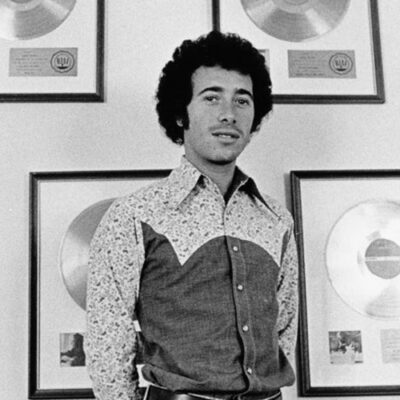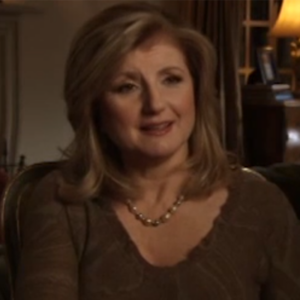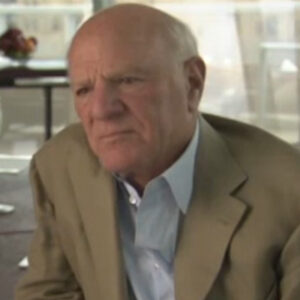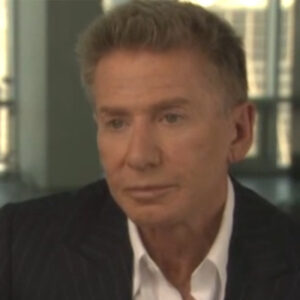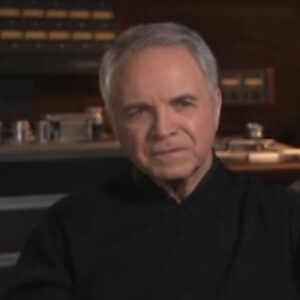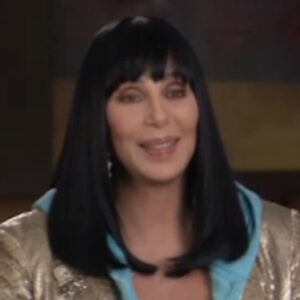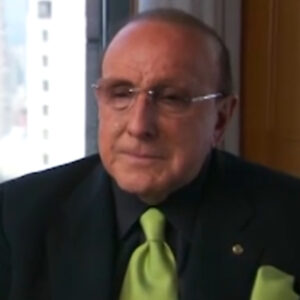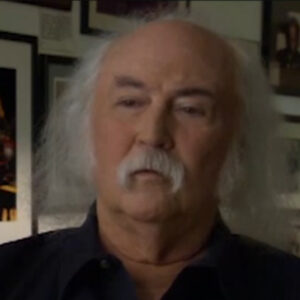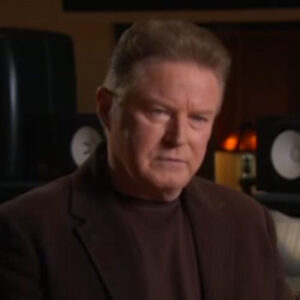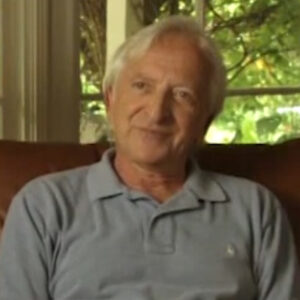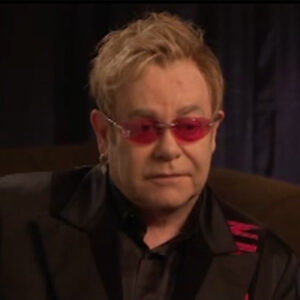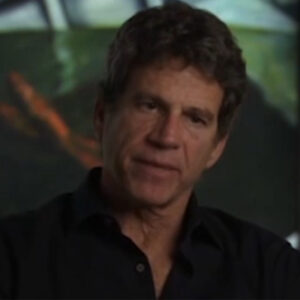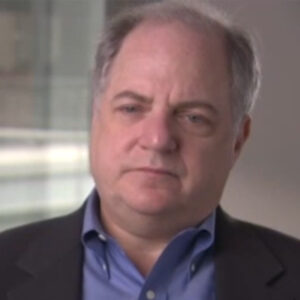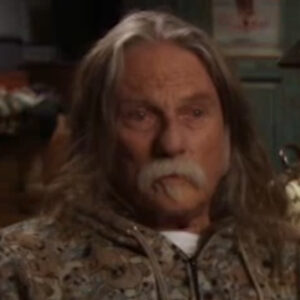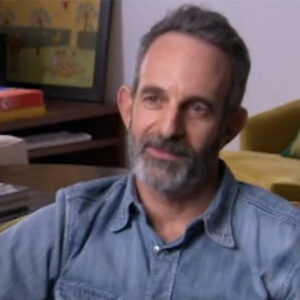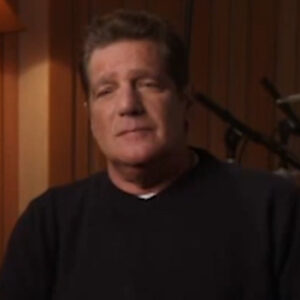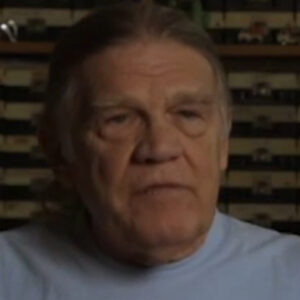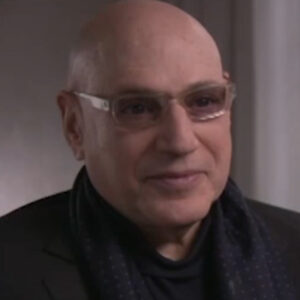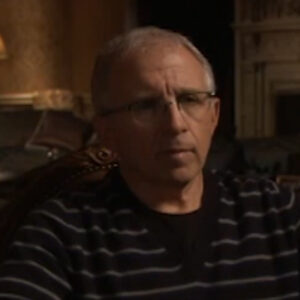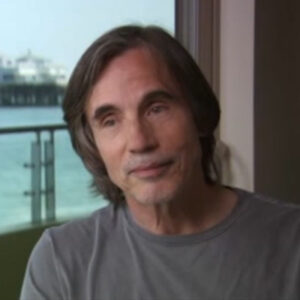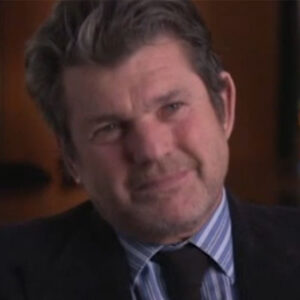Speaker Well, it wasn’t it. I got a job as a rock journalist.
Speaker There was no job as a rock journalist. They were just a handful of us that kind of invented it at the time. And there was so much happening in the music scene now. I was here in New York and you could just kind of feel that, you know, that village was just erupting and we knew what was happening in Philly and and in Boston and Cambridge. And and there were people at the regular newspapers and magazines that were willing to cover it. You know, they thought it was like teenage stuff and everything. So it was just a bunch of young people who felt very passionately about who one should write about. I frankly started with a fan magazine, I think hullabaloo or circus or something like that. And then, you know, I mean, within the same year, moved on up to major publications. And I considered it kind of a mission to get rock and roll written about in major publications. And then one of my best dear friends was Paul Williams, who started Crawdaddy, which was the first serious magazine about rock and roll. And between, you know, we kept the fire alive between him and his nexus of of writers.
Speaker And then pretty soon, you know, The Times and the Saturday Review and Vogue, all those places that I wrote for started picking up on it because it was becoming fashionable. And the regular reporters and music critics and everything, they were very well versed in it and they didn’t really like it. So it sort of fell to us neophytes.
Speaker Great.
Speaker Yeah.
Speaker So at the time you encountered David Geffen. Where were you?
Speaker I was I was freelance. I think I had a couple of regular gigs. I think a hit parade or definitely was one of my regular games. How much or whether I’d started with salary review yet it came around the same time.
Speaker And I met Laura first and she introduced me to David. And then around the same times to a photographer I knew, I met Joni Mitchell and her roommate and met Elliott through her.
Speaker So just that’s kind of how that little Nexus Group fun people.
Speaker Yeah.
Speaker So tell me about how you encounter Laura. I know you were you know, you were walking across the hall.
Speaker I was walking across the hall in a small building on in the in the east forties. And there were three things on that floor. There was the office I was working in was the magazine called Musical Merchandise Revue, which was about musical instruments. And then there was a barbershop where a lot of celebrities went. I saw John Raitt there once, and then there was this other office there, a music publishing office. And one day there, Secretary Carol, who I knew and used to go to lunch with. Sometimes she was coming out with the mail.
Speaker Just the time I was the door came open and I heard this voice. And I’m telling you, I was thunderstruck. I had heard a lot at this point and. And I just stood there and and then I just walked in.
Speaker I just walked through the door. I don’t know. You know, I just walked through the door and she was sitting there and they were playing, I think, a demo or maybe a track from her first album or something like that. And. And I was listening to it and they were all listening to it and they recognized me from being across the hall and I was just like, you know, they said, You like it? I like it. It’s incredible. They said, This is Laura. Laura. This is Ellen. And I see this girl sitting in the corner, this nondescript, kind of chubby, dark haired, lots of eye makeup, long hair, dark dress, everything sitting in the corner, just so you know, quietly and nondescript, early and and I looked at her and my face must have been shining because I just loved what I had just heard so much. And she must’ve felt that.
Speaker And she said, hi, ha ha.
Speaker And from that moment on, we just kind of had a little bond, you know, we just kind of had little girls girlfriend thing going. And I very soon left that job and started freelancing. And I saw Laura from time to time in my 20s.
Speaker Let’s let’s start with you. Stand straight up and he’s going to give you a different chair. So it’s not the chair. She has no job to do with last week. This one isn’t gonna work either. It’s underneath. So it’s stabilized.
Speaker That’s okay. What was it? What was I said?
Speaker You said you saw it after you became a freelancer. That was just great stuff. But we really.
Speaker And I was asking, how old are you? Oh. Twenty twenty three. I was 23 when I believe.
Speaker Yeah, I was twenty three, depending on what month it is, I was 23 or 24.
Speaker She didn’t seem young. She seemed to have like an ancient illness about her.
Speaker I never thought about her as a young kid, except for the first time that I set eyes on her before she opened her mouth.
Speaker But from the time she opened her mouth, she seemed to have this kind of ancient depth to her that was graceful as well as very powerful.
Speaker What was she? So I never asked her how old she was. She was very, very.
Speaker So what are your music sounds like?
Speaker It was blues, it was rhythm and blues. It was unique. You know, that’s that’s one of the things that hit me, you know, is that it was just very unique. It had all these confluences in it, but it had an incredible power. And it was also her lyrics. She was such a great. She is such a great writer. The way she would put words together with the sound and the meaning of it. I mean, her lyrics were so musical.
Speaker And that sounds like a superfluous thing to say, but it’s not really.
Speaker She had a sense of language that was. Astonishing.
Speaker And I’m a writer, so that gets to me.
Speaker And so when you met her.
Speaker She I think she was just about to release the first one within two years. Yes. And so you guys became friends. We became friends and we hung a little bit and and everything, and she kept saying she wasn’t that happy with it. But I, I thought it was phenomenal. Till I heard the next one. And I sort of got what she meant.
Speaker And so she was with me.
Speaker Yes. That was already Moghuls officer was referring to.
Speaker And what was your relationship? I don’t really know.
Speaker You never saw that march?
Speaker Well, I mean, he was in the room, but I don’t really know. She never really spoke about her relationship with already until she was out of it. And then she didn’t say anything good about it. So I don’t I don’t really know.
Speaker So what kinds of things do you take walks in the park or we, you know, gets known together? Ah, one time I went with her down to the village, she called me up and we went down to some studio in the village. She was going to audition to be the singer for Blood, Sweat and Tears. And so the band was all there and we opened the door. We go in and they’re playing. But David Clayton Thomas was singing and she heard him and she she actually screamed. She just opened her mouth and screamed. She saw an audition for this. This is he is she’s just great. But we stayed for the whole rehearsal because it was a lot of fun. That’s one of the things we did.
Speaker And I know she had that penthouse uptown yet. I’m not really sure.
Speaker I know that’s what she did to me. David.
Speaker Yeah. I don’t I never was to her home until she had the penthouse uptown.
Speaker And then I was only there a couple of times. And so we always met somewhere.
Speaker And so was she playing like the clubs in the village?
Speaker No, she wasn’t really playing playing dates.
Speaker I remember Monterrey. I remember the Fillmore. I don’t ever remember out of the village, you know. But we go to the village sometimes. But I don’t think she was playing in the small clubs.
Speaker Tell me a little bit about that scene.
Speaker Oh, there was really wonderful. I mean, there were just a lot of musicians and a lot of songwriters and clubs. They were right across the street from each other, right around the corner from each other. And then everybody afterwards would after the gigs would go and people would go to each other’s gigs and sit in and everything, and then they would all go to the Teen Angel and hang out. And I would always start my evening in the village. It wouldn’t go down there by myself at the Teen Angel. And I met most of the people that I knew there. And, you know, that was just kind of the the watering hole for all of it.
Speaker And you see, John. Sure. Sure. Did I ever see Jimi play the village?
Speaker I can’t remember. I can’t remember.
Speaker I think the first time, actually that I saw Joe the play was right after Martin Luther King had been assassinated. And David asked me to go with him and Elliott out to somewhere in Jersey.
Speaker And I remember we were on our way out there, were in the limo, and there was like a fight breaking out in the street. And she started she got hysterical and she tried to jump out of the car to stop the fight.
Speaker You know, she was just just so overwrought. And I think that’s just when Eliot was trying to convince Joni to sign with David or something like that. So I went out there with them, but I had never seen her do anything but a concert. No, I’m wrong. I saw her at the Troubadour, but that was in L.A..
Speaker I mean, I guess I suppose Steve didn’t hook up with Laurie after Monterey. So now did you go? I went to Monterey. No. But you were there.
Speaker Yeah. Yeah, I went to Monterey. And what was it? Oh, that was. That was amazing. It was the first one. No, there had never been anything like it. There were all these pop stars and Ravi Shankar and these fairgrounds and the cops who were all smiling. It was like a complete, complete, you know, love fest. There’d been stuff like this in San Francisco, but this was really set up beautifully and beautiful stage and music day and night.
Speaker And it was it was just just just an amazing place.
Speaker And was this like a summer of love feeling?
Speaker I think definitely, definitely was 67 and Summer of love. I remember when Scott McKenzie came on with flowers singing When you go to San Francisco, be sure to wear some flowers in your hair. And, you know, the whole place fell silent. But it was also like an audience that was, you know, there been jazz festivals at those fairgrounds before and everything. But this audience was really with the rock.
Speaker And it was kind of a feeling that. This uprising of music had arrived, had coalesced and had arrived.
Speaker And what was the.
Speaker Oh, goodness. I saw Momus and Poppas. The Who? Jimi Hendrix, the dead need. I got one. I mean, it was just like a complete feast of fools and had the story in my book about. I mean, I didn’t go with Laura, but, you know, I can’t. And when I got there, I saw her and we were walking around together. So she goes on to the to the fairgrounds and we’re walking along together.
Speaker Yes.
Speaker So she walks up to him and she turns around and she puts her hand in his and shakes his hand. She says, I love your album. I’m Laura Nyro. I love your album.
Speaker And he you know, he knows who she was. He was one of the people on the board who booked her book tour. There was on one of the on the artistic.
Speaker And he sort of like I think it was just a little overwhelmed, you know. And he sort of backed off and said, well, thank you. And and walked away. And she was just intense.
Speaker She thought that was so rude. And she marched right after she. But I’m around by the shoulder. And she said, excuse me when people tell me that they like my album.
Speaker I think then she really, you know, talk about being born with confidence. That girl, I mean, she never in her own mind was anything but a star. At every moment, I never saw without makeup. I never saw it without a lot of flowing clothes on. And she was just, you know, she had just an amazing presence.
Speaker What was Laura like in comparison to what surrounded her mothering? Did you get in? Was she different? Was she was she more New York and California?
Speaker Well, she was definitely New York.
Speaker I mean, when you look about let’s talk for a second about two were the the female artists of the time you had Joni Mitchell, who wasn’t there. But, you know, this, you know, folk princess with, you know, who brought a whole lot of jazz and literacy and into into the middle from Saskatoon, Saskatchewan. And he had Grace Slick, who was San Francisco blueblood and just, you know, just had incredibly icy voice that would just cut right through you. Just beautiful. And then there was Janis Joplin, who was this blues band. She from Port Arthur, Texas, you know, just kind of this guttersnipe goddess. She was just amazing. And that was the first time anybody saw her. But if you ask me in my not so humble opinion, Laura Nyro. Could blow them all away with her power and her intimacy and her blues and her rhythm and her words and all these arrangements going on in her head. She was just, to me, such an enormous talent talent.
Speaker For me, it was like Laura Nyro from the Bronx. And maybe she didn’t come away from Monterrey, having made that kind of an impression.
Speaker But I always knew and I miss her. I miss her work.
Speaker I think it was Clive Davis who we talked to who said, you know that. He remembered seeing her play, and while she was, you know, it was phenomenal. It was just not.
Speaker That was really not the case. I mean, what Clive said is true, and Clive is one of the most perceptive people you were ever gonna talk to about anything in the music business. But what happened there really is that she played with a house band, a band that was hired to play with her, and they didn’t do a very good job of it. And that’s really what happened to her performance because she herself was good. And then after you know, after that we all went to San Francisco, not together. They stayed in one place and I stayed in this other place.
Speaker And then she called me up and I went over to her motel.
Speaker And the fifth dimension was also staying there. So, you know, she had invited me over. We’re all going to have Chinese food. Her singers and I went over there. Then the fifth did. Guys came in and gals and they were talking about it and she said.
Speaker You know. We blow it.
Speaker Did reply. I said, I don’t think so. So I’m hearing that we blew it. And she looked at her backup singers and she said, Let’s sing the album right here. Right.
Speaker And they threw open the windows and they got up and they sang an album from one song to the next and the fifth dimension. People were like.
Speaker And they put on a performance acapella. That was amazing. And that’s how the fifth dimension got to record all of her songs from that night. So, you know, to Laura, I like it. You know, if if it was going to be said that she had blown it, she was gonna do what they had planned. I think I think she did. OK. I mean, I was right upfront. I think she did OK. Makes her bad. Sorry, Chipmunk. They were. And and the band was clueless.
Speaker Why sort of why is perception?
Speaker First of all, why this myth and perception that there was booing, there was no booing. There were some inattention. There was no booing. I didn’t hear any booing. Somebody else heard it. OK, I didn’t hear any booing.
Speaker So there was there was no but there was some inattention. And the way she entered and exited her set was not real clean.
Speaker But in her patter was a little too self-conscious. But, you know, nobody knew who she was.
Speaker Nobody knew who Janis Joplin was. Well, I guess the West Coast, they did, and they were they were on the West Coast.
Speaker But so you were saying it was your first. Oh. You had gone out and see.
Speaker Yeah, I was walking around San Francisco, you know, China Sea with the Haight Ashbury. It was all about it really was jumpin and in front of a place called the drug store. It was Janis Joplin. And she was just cackling. And everybody was congratulating her because she had really she had really killed, you know. And, you know, the world had just opened up for her. And so the word was that, you know, Janis killed, but Laura was less than impressive.
Speaker Now, is your energy presence. Is there any truth to the fact that his client talks about this a little bit? And so it is only when there’s a little bit which was that not so much that Laura’s performance wasn’t good, although we can talk about the BHAGAVAN and how they really do justice, but that she was just different than the other dads were more psychedelia. They were more.
Speaker Well, there was Ravi Shankar. He was different, you know. There were there were a lot of I mean, Scott McKenzie was different from Jimi Hendrix. The view was different from Otis Redding. So, you know, part of the pride of the program was the diversity of it. You know that it was all under this rubric of of rock, you know, that emerged from rock and roll. But there was a lot of diversity there. I think it’s just one of those myths that just grows and people just sort of get a hold of it and repeat it and repeated and repeated. And I just you know, it was not essential. I don’t think really, after that week, Laura herself ever gave it another thought.
Speaker So you think maybe what you perceive as a lack of confidence when you look at the performances just with back of.
Speaker Yeah, they were clueless. They were just they were just a hired band with with with music. I don’t know, she rehearsed with them or wherever. But they you know, they just were not there. And she was unhappy about that. I don’t think she had a good musical footing. David Geffen never would have let anything like that happen. And she was going to play like the Carson show or something. You know, he’d say, you know, and she’d be a little hesitant. He’d go. You’d just be playing to your own tracks. And that’s, you know, so that she totally because her music is very complex. It’s just not it’s just not lyrics and melody. She sings through arrangements that she totally navigates the whole time. Know slow and on her recording, she had I mean, every note was placed just right. So, you know, she’s she’s very, very complex musician and she needs the exact backup that she and her musical arrangers and producers will, you know, will come to. So that just was not a very well, you know, for what that should have been.
Speaker It was just not very well set up afterwards that she thought she thought it was fine.
Speaker I mean, not until I came to the to the motel that they were staying out there.
Speaker Did she. You know, and word was like coming back. Did she ever wonder about it?
Speaker It was more of a rumor. They got it started.
Speaker Yeah, I mean, it maybe wasn’t her strongest performance, but or the strong performance on the bill. But it definitely was not anywhere near a disaster that that people make it out to be.
Speaker So now after it was finally.
Speaker I think so. Any perception? Did he feel it? I don’t know already. I have no idea. You were privy to that.
Speaker So then afterwards, I mean, the way that David tells a story. And I mean, I don’t know whether who knows whether it’s true. You know, it’s a little Rashomon and who knows.
Speaker But, you know, he had gone out to visit a friend in California who I think was a director. And he said, you gotta hear this. You’ve got to have more nutritious naison. And he put on more than rediscovery and played it for David and David. I just was floored. He was floored. He was floored.
Speaker It’s just like you were never in my life. She was a town person I’ve ever heard. I have to find her immediately. And this guy, who is a friend of his, said, well, you know, she just had this performance at Monterey and left and, you know, word has it that it didn’t go well and that. She was quite unhappy about it, so but here’s how you can get in touch with her.
Speaker And so David went and looked at T-Mobile Mobile and said, I’d really like to go and talk to you because I hear because I heard her out. And I think she’s the most incredible thing ever. And artists, I will go ahead, because apparently he was somewhat disenchanted with her at that moment. Maybe he didn’t like what the reception of the rumor had been at Monori.
Speaker He she probably gave him a piece of his piece. Piece of her mind. No anger. I mean, that would be my guess about about Monterrey.
Speaker She probably gave her she probably gave already mogel a piece of her mind about Monterrey. That would be my guess, that she wasn’t happy to support their. Yeah. Which he was responsible for.
Speaker So anyway, as you know, I’m sure he tried his best, but.
Speaker But maybe he just, you know, really didn’t understand the scope of what kind of support that she needed. And David did. Maybe it was easier to figure out after something didn’t work as well as it could.
Speaker So David said that he went and saw her at 88 Avenue in Hell’s Kitchen and he went up to her apartment and he said, Hi, my name’s David Geffen and I want to represent you.
Speaker And, you know, he just he he and a from.
Speaker By all accounts, they bonded.
Speaker Well, they definitely were bonded.
Speaker David and Laura, they definitely were bonded. I mean, you could just you could just see it when you saw them together. They were definitely glowing on the same frequency. They had an intensity that matched exactly.
Speaker David saw recognized tremendous potential.
Speaker That is David’s gift. He recognizes talent and potential. You know, there are a lot of ways to succeed in the music business. You know, you have a lot of people in there that understand how the system works and how to game it and know people and use relationships and and other things that I don’t disparage that that’s not you know, those are vocational skills and they’re important. But David had this passion for the talent that he liked and he had taste that was amazing. And he went 110 percent into anything he ventured into. And if he didn’t feel 110 percent. He didn’t go into it, you know. And an end. And he just had this this taste in this passion and hutzler.
Speaker He had it hurts. I mean, if he was Hurtsville unsterile and nothing would stop him.
Speaker And and he and Laura had that in common. She never saw herself as anything else, but a huge success and a huge star. She worked incredibly hard at anything she did. And those were qualities that they shared and loved about each other. Now, some days, I think. Do you remember meeting I’m sure Laura introduced us, but you I’m sure Laura introduced David to me.
Speaker But I’m not. I’m not. I don’t have any recollection of the meeting.
Speaker What was what was your what was it like in those days when it looked like he had curly hair?
Speaker He was really cute. He he talked very fast. He was very enthusiastic. He was a very attentive friend. He was he was just all over the place. He was just really excited. He couldn’t. He was excited about what was happening in music. He was excited about Laura. It was excited about his own trajectory. He told me the story about how he was working in the mailroom at William Morris. And one day a client came in and the agent the client was supposed to see wasn’t wasn’t there. So he acted like a big shot. And he showed the client all around the office and he was pretending to be an agent and he got busted.
Speaker His boss yelled at him then and and and and disciplined him and. And he said and I told that guy, listen, you have to make me an agent because am going to be the best agent you ever saw in your whole life.
Speaker And I an agent is first and foremost a sales person, you know, before we get into, like, you know, the talent they have with the talent they represent.
Speaker And he just saw this guy and the guy the guy was like flabbergasted and he made even an agent.
Speaker And so he told me that that was his. His entree. And I thought, you know, this this person is really very special. He is really very full of himself. But you know what he deserves to be. Yeah, I mean, he seemed like he was like that from the get go, the get go is all I knew him from. I mean, we but but he definitely had a lot to get up and go and.
Speaker And, you know, and then he hooked up with Elliott Jonie. And, you know, I mean, he just and everybody he got was like top drawer, top rate.
Speaker And he, you know, and he treated them right from the moment that he met them.
Speaker And what did what did what specifically did David do for the world? I mean, was he was there.
Speaker He was her he was her friend, her confidante, her agent, her promoter, her biggest fan. He did everything but interfere with her creatively. He was hands. He was hands off creatively, but he got her with the best people he could. And she would drive them nuts. But she he would hold out for her creative control. This was like a tough on arrangers and producers, but some awfully good work came out of that.
Speaker And D and so Laura was aware of what an amazing champion David was.
Speaker He she was she was she loved him and she loved what he did for her. And she was just very proud of him and he was very proud of her.
Speaker They had a very they had a relationship that doesn’t have a name. I mean, it’s not like brother sister. It’s not like lover lover. It’s not like cousin, cousin. It’s it’s not like anything I’ve ever seen before. They were just very, very tight.
Speaker They were on the same wavelength. And David Geffen, who was one of the biggest blabbermouths I’ve ever met in my life, kept Laura’s secrets. You know, and that that’s impressive, looking back on it.
Speaker It just gives chills.
Speaker It’s not, you know, but she did feel let down. But she let down her much broader sense. She didn’t. You know, if you read that little clip that I that that I brought for you.
Speaker She thought her chief thought she had all the wrong people on her first album. You know, she didn’t like the way that came out. Although I couldn’t. So, you know, she she felt fell down in a much, much more much broader sense than just that one.
Speaker Incident. Did we get them? OK, that’s great.
Speaker And that’s wonderful. And I always love to correct these myths and straighten him out because I have my sense of things that other people have theirs. Well, you were there. And yet after afterwards. So I would think that, you know, I mean, Clive Davis, though, he was in the audience.
Speaker I mean, he wasn’t speaking to Laura afterwards. He didn’t actually meet or until she came and auditioned for her deal. So you certainly were much closer to the situation than he was. But that’s fine. That’s what these films are for. You know, people can say, you know, what their perception was, but that doesn’t make it the truth.
Speaker I think it’s important.
Speaker I’m glad you’re paying a lot of attention to work. That’s really nice.
Speaker I mean, I think one of the reasons that war is not a story and so that you kind put it in context to the rest of the film is that, you know, Laura was the really the first instance and the best example of David in his calm, purest form, which is that he was completely devoted to her.
Speaker And then, you know, she was climbing and essentially he had other clients at the agency. But eventually when he went and he quit, he became her manager. He quit to become her manager. Her manager only didn’t have any.
Speaker And he put all of his 100 percent of his tension on her. That’s true. And it’s a love story.
Speaker It is a love story, though. But, you know, I mean, they both loved music and they both loved themselves. And, you know, I mean, there was a lot of love there. I always felt it when I was with them. I sort of, you know, got the reflected glory of it. And it was a beautiful experience to be with them. It was a beautiful experience to be for me with either one of them. But when they were together, it was a.
Speaker Radiant.
Speaker And so David was more than a manager, a friend. And all as he was supporting her emotionally, financially, physically, spiritually and artistically.
Speaker Which was the most important thing to both of them, I think.
Speaker And do you think it was unique that I mean, could anyone have put out other obviously Arty Mogel? I mean, I know you don’t know of that relationship, but it’s obvious in looking at the bigger picture that I didn’t really understand what Laurie needed. On some level they weren’t. It was something off about that relationship. Otherwise it would have continued and. Is it is it I mean, was it unique that David looked at me and said, my God, I see a star here with someone else? Lowden’s and wife is unusual bystander causation. I’m not sure what we’ll do with her. She is.
Speaker I think that’s what anybody else would have said. Looking at Laura, what do you do with something like that? She is extraordinary, but she’s out of the ordinary. She doesn’t fit into any of these categories. So, you know, how do you move forward with a talent like this? I think that would have been perplexing to anybody but David Geffen, who just got it. He saw it. He got it.
Speaker He knew what to do for her.
Speaker I guess so, because he did all the right things. You know?
Speaker So.
Speaker What was your relationship like with David? At the time, we were just buddies, buddy. Yeah. We were just buddies. And did you guys go to parties or what did you have? Yeah.
Speaker Yeah, we got invited to a lot of the same events, or sometimes you get invited to something that I wasn’t invited to, for instance. We went to the opening of Electric Ladyland studios when Jimi Hendrix opened it up in the village.
Speaker And we went down there and I remember we were out there and we weren’t late. But, you know, just there was a crowd out in front. And we couldn’t get to the front where the guest list was and everything like that. He said to me, oh, let’s just go, you know, can you imagine if they wouldn’t let us in or whatever? So we turned to go and then somebody came bounding through the crowd and drag us both in. And that was like an amazing night. But we put together places it wasn’t like really dating.
Speaker It was more like even though we both had stature in that burgeoning musical community, I think we both shared this kind of Jewish sense of being an outsider. And people would would be catty about either one of us just because we had both kind of seemed to have risen so fast through the ranks or whatever. With that, you know, I was a girl doing things that mostly guys were doing everything. So, you know, it was hard to kind of have friends in my own métier. But but David was always there to kind of shore me up. And then I was always there to get for, I don’t know, for whatever reason. But it was nice to have somebody to go to.
Speaker And, you know, like like he was saying, we’re not gonna get into the this.
Speaker Let’s just go somewhere, you know. But but but it was it was it was fun. And I go places with Kim and Laura too.
Speaker We went to press parties and things like that together and he was hilarious.
Speaker He was absolutely hilarious. It was totally fun to be with. And we were all having a great time. I mean, it was a great scene.
Speaker So do you think there’s any truth to that? I mean, I know you we. This is your take on things.
Speaker Is that Laura? I was not. It didn’t have any sort of emotional. Baggage from the experience at Monterey, but.
Speaker Do you think that David played a part in bringing more of the next level in terms of her own confidence, in terms of her own growth?
Speaker David definitely played a part in moving Laura from one artistic level to another in terms of her. Her talent did not change. But in terms of what was around her, the the the production team for her records, the arrangers, the the producers, the record label and everything, he orchestrated all that. And then he allowed her to participate in orchestrating her own recording sessions and arrangements. And because she could do that, she played piano, she read music. You know, she knew exactly what she wanted. And so he supported her in that.
Speaker And it’s, you know, I mean, it was an unbeatable offer, whatever you want. Here it is.
Speaker And was she pleased that he had brought her to Clive?
Speaker She was thrilled. She was thrilled with the whole thing.
Speaker She was she was thrilled to be on Columbia record, she was thrilled to even meet Clive Davis, much less, you know, be signed by him. She was so happy because she knew that she was going to be able to put out the kind of product that she wanted.
Speaker I think I read somewhere that she was about being doubt. Yes, it was definitely.
Speaker Yes. She was very happy to be on Columbia. It was Streisand’s label. It was Dylan’s label. So, you know, she. She was Miles and Miles Davis. Well, we once went to a Miles Davis concert together, and we were I think it was at the Fillmore East.
Speaker And we were sitting there and I was just kind of, you know, how you get it, a concert. You just completely if the whole world evaporates around you and you, you’re just in the music.
Speaker And she leaned over to me and she said he’s playing the physical properties of the trumpet. He’s not just playing the notes. He’s playing the physicality of the trumpet, you know?
Speaker And she kept repeating stuff like that. And it was like amazing to be there with her experiencing it through her, even though she had kind of interrupted by reverie. It was just like, God, Laura just she was oh, she was she was a genius.
Speaker And she was inside everybody else’s genius. I would definitely say Laura was a genius and so was so was David Geffen. And so that’s another thing that they shared along with their mutual self-absorption.
Speaker Two geniuses can go far. So.
Speaker One thing that I’ve read is that I don’t know if it’s true or not, but I do I wonder about this fact, these two geniuses and these two very strong personalities.
Speaker If there was ever sort of a push and pull in terms of the control.
Speaker I mean, David obviously is a person that likes to control the environment and control everything.
Speaker Did Laura ever push back and say, hey, David, I know there was lot of push and pull, but I was never there when it happened. But. He mentioned, you know, that. That she was a handful, but it was no less than what he expected. But I you know, you would expect. I was just never there when the only time I ever saw them was like social things.
Speaker And, you know, if I went to a lawyer’s recording sessions once I went to David wasn’t there was a little bit more before he said, oh, yes, our producers are tearing her, carrying their hair out because she wanted to do things over and over again. And she was never she felt like nothing was ever finished. And, yeah, she was a perfectionist and and very, very stubborn. And so it was it was kind of hard to get through a recording with her. But everybody loved it when when they were finished with it.
Speaker I was there a couple of times when she was laying down, laying down tracks. I was there a couple of times when musical tracks were being laid down. She wasn’t singing. And a couple of times when they were playbacks, it was it was very intense recording sessions. I was already tense, but, you know. I never met an artist that was that that involved in every aspect of it except for the engineering. You know, I mean, just musically, she was into every note, every Gracenote, every harmonic, every beat.
Speaker So you were never there with David without the recordings?
Speaker No, I don’t think I was.
Speaker You know, I just, you know, if I’d be actually never even there very long. Be there maybe to pick her up, to go out later or drive her somewhere or just. I remember one night I wrote this article and it was about being at Columbia Studios in Los Angeles and going from one room to the other, all these different artists recording. And then Laura was was one of those and, you know, I and Ella.
Speaker So that was like getting.
Speaker Eli, Eli. She probably will. No. That was in L.A.. I don’t I don’t remember what album it was, but I could look it up.
Speaker I’ve gotten so old that I have to look at my own chair sheets. She still doesn’t really know.
Speaker So one of the things that David, I think, did, Laura, was that he recognized that not only did she have great potential herself as a singer star and that her songs were so amazing and really pushed other artists record her songs.
Speaker How did she feel about that? Was he happy about that?
Speaker Yeah. I mean, that’s you know, she was enough of a songwriter, too. You know, she sold all the songs to the Fifth Dimension.
Speaker So she, you know, she loved covers and eventually made her quite rich.
Speaker I would hope so. I mean, she. You know, David see, you know, David definitely is on a mission to have.
Speaker I mean, for example, he he was very instrumental in he said I mean, you heard Barbra Streisand. And he made sure that, you know, certain songs were important and not need her song catalogue extremely valuable.
Speaker Was there was was was law aware that that was having the DVD was sort of plotting to make his own catalog so valuable?
Speaker Oh, yes. Oh, yes. That was that was part of what he was doing.
Speaker He was part of what David was doing was making her song catalog, her publishing catalog very valuable by marketing them to big stars like Barbra Streisand.
Speaker In fact, he once complained to me that he had asked Laura to tell Barbra Streisand that she had written a certain song for him.
Speaker I don’t remember what it was. Was it wedding bell blues? I don’t remember what it was, but. And he complained to me that she wouldn’t do it. And I thought, you know, so maybe there is one. One example of of of the the battle of wills.
Speaker But but she just felt that that was unhurt. You know, her integrity. And he just felt. Why wouldn’t you do that? This is Barbra Streisand. And she’s going to record it. She’s gonna make it her song anyway.
Speaker You know, and. And, you know, he just he was just complaining to me. I still believe she wouldn’t do that. And it really hurt my feelings.
Speaker What’s the report anyway, right here? Of course. So now we talked about this briefly. It was November.
Speaker I don’t remember.
Speaker I think I had to be, you know, November 69. I’m just happy Thanksgiving 69. Yeah, I had it because I remember a concert on Thanksgiving at length at Lincoln Center. So I guess I had to be there. But I don’t I don’t remember. All of Laura’s concerts were great.
Speaker You would have been downstairs with just a piano with a single rose. It was very simple staging.
Speaker Yeah. That’s how it usually was. You know, she, uh, she like well, you know, she would start off very softly, like, she would speak very softly. I remember once she introduced a song she introduced when I was in Freeport and you were the main drag and she was sitting at the piano and I had the feeling that she was just like making that up on the moment.
Speaker She said, I wrote this one morning when I woke up. Great.
Speaker And then she just launched into this when I was a Freeport. And you were the main drag and, you know, she was really, like, understated in her in her speech.
Speaker But, you know, boy, when she sat down to play, she was. She was just amazing. The crowd at that point. Everybody loved her. I mean, she was just I think this was a concert where Jackson Browne was opening and he was saying, I know you’re all anxious to see Laura up there with me because he wasn’t that well known at the time.
Speaker He was sort of a legend on the West Coast, but it was just kind of started out on the East Coast and at least at that level, at the concert level.
Speaker And, you know, so everybody was enraptured. I mean, you know, she she did she did at some point have a fan base that was enraptured. In a very special way. It wasn’t standing up and screaming kind of crowd, you know, it was the kind of crowd that hung on to every word that side at the end of a song before they burst into applause. So, you know, she had she had she had a great intimacy onstage. Yeah. Connection, I would say, with her. Yeah. Even if it seemed like she was talking to herself.
Speaker She you know. She was a great performer.
Speaker To see the play and boy, do I wish there was some footage of that kind in rock concert. It’s just.
Speaker There’s no concert footage. There’s Monterrey. There’s some television appearance.
Speaker There’s no footage of a concert, which would just be so amazing because I’m sure they have a presence in that particular, you know.
Speaker She was she she was a consummate concert artist.
Speaker She just made it look easy. You know, she was vulnerable. She was intimate. And then she would be just so powerful and ringing. And those those are very memorable concerts.
Speaker So from all accounts, that Carnegie Hall concert was a great moment, it was a great triumph for her. You know, she. Her music was more well-known than ever. Her songs were being recorded by top artists around the country. They were top of the charts. At that point, she was peaking.
Speaker She was peaking in every way.
Speaker That is important. And she knew it, you know. And it was it was in in real time.
Speaker It didn’t seem to take that long. But it was a very, very long journey. And she didn’t have any awkwardness in fitting, fitting right into it.
Speaker So.
Speaker So, you know, eventually, obviously, deep breakup essentially was a rift.
Speaker I didn’t hear about the breakup of Laura. And David, everybody calls it a breakup from David or Laura. I heard about it from Elliott and I thought, oh, they just had a fight. They’ll be back together soon and everything. And Elliott said, no, no, no, no.
Speaker And Elliott also told me that he was crushed, that he’d never seen David like that. That he was just absolutely devastated and that he’d drag David back to New York to talk to Laura.
Speaker And Laura wouldn’t talk to him.
Speaker I don’t know what happened there, but but it definitely it definitely hardened David. It taught him that you have to put some distance between you and your artists. And he even said to me, said, I learned this. I learned this from Elliott. He said, Elliot told me this story that one time Johnny called him and Elliott at the time had been handling Johnny’s money and that she had just moved to L.A. and bought this house in Laurel Canyon and everything and was remodeling the house and everything. And so she was looking over the books, I guess. And she called Elliott. Then there was a thousand dollar check and there was no explanation. And she wanted to know what it was for. And Elliott said, I don’t exactly remember. And that Joanie got hysterical to Elliott.
Speaker Please, please remember, this is David, like imitating Joanie, please remember. And she’s crying and she’s hysterical and everything. And.
Speaker And Elliott hung up the phone and then call her back. You know, a few hours later. And it was he paid the roofer, you know, to do some roofing on her house and everything like that. But he related the story to because Elliott and Joanie were very close to and.
Speaker And, you know, he any and he said to David, you can’t let these people break your heart because for one, you don’t do as good a job for them. If you do, you have to. You know, there are just you know, they’re they’re crazy. They have they have their own you know, they have their own way of seeing things. And and sooner or later, something’s going to happen that hurts you. So you’re gonna just gonna have to, like, man up after this and, you know, and get over it and move on. And so, you know, that was the way David explained it to me, that he was just gonna have to get over it. But not for a second did he ever give me the impression that anything could mend that relationship. And I was completely confused. I couldn’t imagine. Well, you never know what happens with people who are very close to each other. And on many levels. So, you know, a relationship that could be very deep when it’s going well can also cut very deep if something wrong happens. But I really couldn’t say. I have no idea. I didn’t then and I couldn’t even speculate now.
Speaker But it certainly wasn’t a good move for her, you know. I don’t think I don’t think her career really kept kept growing at the same rate as it had with David.
Speaker And even though she may have been, you know, raking in money from publishing and stuff like that, you know, I didn’t see her making many hit songs on her own or made many more albums. You know, I mean, it just kind of continued and a very.
Speaker Less than stellar pace where everything David touched from then on just turned to gold. So and actually, I don’t really think her career ever really went on that trajectory again.
Speaker She assembled an audience that was kind of a cult audience. You know, she she she became a boutique item rather than a huge star. For me that I’m not saying that that makes her any less of a talent. I still admire and and love her music and her as much as always.
Speaker But I really felt that her career took a definite nosedive after she and David parted company. Business was.
Speaker Who’s sad the way he’s.
Speaker You never know what Laura wants. You know, she and I understand this because at at a time when my career was was really very public and very successful, I wanted to start a family because it was just like my time in life. And I knew that. And and I wanted to change my lifestyle from urban to rural. And maybe the same thing happened to Laura. I’m just speculating. I don’t really know. But she became a mom and, you know, she had a house in Connecticut. And, you know, in her life, you know, I mean, I guess she was still financially pretty well off. But, you know, she had a different kind of a life. You know, stardom isn’t everything, successes and everything. And you can get addicted to it. And, you know, you can you can depend on it. But there is another side to life that you need very desperately. And the more successful you get, the more desperately you need it. And the further away you get from it and the further away the possibility that you can get into a meaningful personal life gets, the more successful you are, because the people who gravitate around you are not gravitating around you for the same reasons. So I would understand it if Laura went through a bucolic period by choice. You know, sad.
Speaker Not sad because. Yes. It’s sad that that relationship broke up. But David went on to fulfill. His dreams and more and.
Speaker You could speculate that Laura did the same, but just in a different way. That that would have been if she had stayed with David. You just don’t know. But from all accounts, until she got ill, she was very, very happy.
Speaker So. Yeah.
Speaker I mean, you know, what was it, as you know, before backing up from the fact that they had this rift leading up to that? And I guess the year that that David was growing, I. In his own professional career, he was getting other clients and he was mean.
Speaker I don’t know how. I don’t know if you have any idea how Laura felt about David having clients other than her. I mean, there was a time when I don’t do David and.
Speaker I do not know how Laura felt about David having clients other than her. She never said anything to me.
Speaker So, Neasden.
Speaker So moving on to.
Speaker I don’t know about this, but obviously at some point, David, after he started siren went to Elektro.
Speaker When Jack was leaving.
Speaker Were you aware of that transition and what happened there and how it even ended up taking over? No. Oh, we’re not.
Speaker Well, Jack and I had broken up at this point, although we had a child and everything. But but but he did say to me that he called the office one day and somebody answered and said, electorate asylum. And it just gave him pause. But, you know, I really don’t Jack. Was Jack was moving in a different direction. He had sold Elektra well before then. And it stayed on for a while. Yeah. It was actually Kinney National Services when he sold it. And then it one everything.
Speaker Yes, well, Steve was so.
Speaker It no rules then.
Speaker So just going back to the early sort of data for David that we know today, it was a whiz kid.
Speaker David Geffen was a whiz kid.
Speaker You always can’t imagine David Geffen before he became David Geffen, sort of in a way.
Speaker I never knew David Geffen before. He was David Geffen. Very good talking about. He never knew Ellen Santore before. She was Ellen’s owner. You know, I mean. I I met David when when when Laura took him in.
Speaker So, you know, obviously that was the supernova.
Speaker Was I mean, just with David, open the gate. No. Deal. I don’t know.
Speaker I mean, you never saw him with girls. He wasn’t it wasn’t one or the other. He’ll just say it was.
Speaker He was just asking me. I wasn’t dating either. We just we just piled around together because we were. And then it would be OK if, you know, if one went home and the other didn’t. So we were like, you know, but it wasn’t like dating, dating romantic. It was just like, you know, we go to these places together when you all the same people and or if we didn’t, we get introduced to them by each other and.
Speaker But I don’t I don’t know what other.
Speaker Well, the company he kept, he didn’t discuss it with me. I sure didn’t discuss it with them.
Speaker And did you stage everything?
Speaker For a while, you know. But then we just both kind of, you know, drifted into our, ah, our own lives. I wrote this book, Trips Rock Life in the 60s. And I guess our friendship sort of ended over that. When the book came out and I didn’t even realize this, it didn’t have anything about David in it.
Speaker It was it was called Trips Rock Life in the 60s. And it was sort of like a memoir and a history of my my exploits. And and, you know, it was all new writing. It wasn’t like an anthology and working on an anthology now. But so anyway, this book came out and then the word comes back to me that from from L.A. that David Geffen is complaining to everyone. We know that I didn’t write anything about him in my book and that he’s absolutely astonished and furious and just can’t even believe it and can’t stand me anymore and everything. And I was like, oh, you know, how could that be? I looked through it and sure enough, I hadn’t written anything about David Geffen in my book. And I get this letter from Ahmet Ertegun saying, Ellen, I’m but I just read your book. I love your book. I love what you said about me. I love what you wrote about Atlantic. And I especially love what you said about David Geffen. So I don’t think I’ve spoken to David since, and I may have, but but I know he was pretty upset about that for a second.
Speaker Yes.
Speaker Now, knowing him and having known for you to meet again when he getting his start.
Speaker Were you surprised? Nope.
Speaker Nothing. Nothing he did surprised me. I was what I was maybe surprised that he branched out into musical comedy in the end those things, because it never occurred to me that he kind of go outside of the music business, in movies and everything. But I never for a second from from the moment I met him, doubted that he would be enormously successful. And he always told me that I was we were having lunch or something in L.A. once. And he said he just sold Johnny Rivers publishing. Johnny Rivers gave him his house and he laughed, you know, healths worth millions. You know.
Speaker And.
Speaker So.
Speaker David, so wonderful at doing all these different things, because what do you think?
Speaker Well, he was talented. He was talented.
Speaker He knew talent. He he he knew quality. He was dedicated. He worked harder than anybody I’ve ever met in my life. There was nothing he wouldn’t do. Nothing could stop him. And, you know, when he had a goal, he just worked at it till till it got done. And he was charming. I mean, this was before he pissed a lot of people off, too. And people would say to me, disgruntled people who I won’t mention, but, you know, some pretty pretty big muckety marks in the music business saying, you know, what this kid doesn’t understand is that you meet the same people on the way up as you meet on the way down.
Speaker Or was it the other way around? You meet the same people on the way down that you meet on the way up.
Speaker But there was a town for David, so that worked out for him.
Speaker He did. I mean, you know, there was nothing he wouldn’t do and there’s nobody who could go either way. You know, if if we wanted to make a deal, he would. He would go to any lengths.
Speaker Yes. Anything you want to stress right there?
Speaker No, I don’t believe I saw a lot of Laura after she broke up with David. So I never heard her side of what it was. I always wondered. I didn’t pursue her or either. But somebody could tell me that. Well, there is somebody who could tell you that, but I don’t know if he’ll tell you, David.
Speaker Well, David will talk about his side. I think more is. What did he say?
Speaker Well, I think David will will go into more depth to David because I’m now that have interviewed you and we’ll interview also try to let who’s there for her, you know, recording of Eli. But, you know, I mean, he basically says, you know, she he he she had promised to sign on asylum and then she changed her mind and decide to see the Columbia.
Speaker And that was just devastating to him. And, you know, essentially went as far as he was concerned, it was as though she was snubbing him and she was saying, I don’t want to you know, I have.
Speaker I don’t want you in my life anymore. So that’s how I woke up. I don’t know things more.
Speaker I saw more of Laura after they broke up than I mean, I saw more of David after they broke up the end of Laura. I think Laura withdrew from me, too, because she felt that maybe I was tight with with David or whatever. But I never knew what happened. I heard I heard what happened. I sort of felt the rift in the cosmic firmament of the music industry and of, you know, of this incredible artistic bound. But I never really understood it. And something tells me not to try.
Speaker Fair enough. And were you so did you watch the asylum take off and grow, and were you admiring it from afar? Were you still covering? I was. You did get a call. Oh, sorry.
Speaker I was at that time withdrawing a little bit myself. I got pregnant 1971, so I wanted to, you know, and I wanted to finish the book and, you know, get a different kind of life established and everything like that. But I mean, the Eagles, Jackson Browne. Jackson Browne, like, was just somebody whose demo was sitting on David’s desk and the secretary thought he was cute and played it and played it for him. So, you know. But that was like, you know, another great connection, because the Eagles came out of the gate with Jackson Browne songs, even though they were incredible writers themselves. And Joni, of course.
Speaker It was just this quirky, but somehow managed to hang on a lot longer. Through all the quirks and hardships and artistic changes and NCDC changes and rifts and everything like that, David was about the journey.
Speaker Yeah. Long time after.
Speaker You know, I mean, were you ready? Did you get to hang out with David and Elliot together?
Speaker A couple of times I think. Yeah. And how did Elliot Elliot different from Elliot?
Speaker Elías very is very smart guy and very kind of warm guy, and he’s and he’s is a he’s a sensitive guy and he’s in his and he’s and and he he plays things very close to the vest compared to David, who is just all out there.
Speaker I met actually I met Joanie through a photographer and then I met Elliott through Joni. And then and then I had met David and then that all that all came together.
Speaker I think I think I met, you know, so that, you know, that connection sort of came together around around the same time. But he’s a very different personality and an and also a very talented personality.
Speaker It was a good match.
Speaker Yeah, well, they did very well together.
Speaker A bit of a yin and yang going on. I think.
Speaker Possibly a yin and yang going on.
Speaker David and David was the sort of the back office making the deals guy and Eliot was the guy, you know, on the road and, you know, doing the heavy lifting, so to speak, out on the road and having those relationships with the artist hanging out on the road and doing all that stuff to do that.
Speaker David?
Speaker He definitely could make the deals that David Geffen. Did you ever hear David Geffen yelling on the phone?
Speaker I think I might have heard David Geffen yelling on the phone, but, you know, all agents yell on the phone. It wasn’t it wasn’t yelling on the phone. You know, it was just a different a different kind of persistence. You know, he was like a lightning bolt, you just did not. You just did not ignore him.
Speaker Anything else in asking you? A story that I missed. It has spent over.
Speaker About our David proposed to Joan.
Speaker That’s why I think that’s OK.
Speaker So make sure we.
Speaker I, I you know, I really wish that there was first of all, I sort of still here.
Speaker There’s nothing the universe can do about that. But I do wish that, you know, there was somebody else who could talk about, you know, this post.
Speaker David, breakup period, because it’s just you could ask Eliot.
Speaker Maybe it has something to say, because I know that, you know, Eliot was David’s confidant at the time and he really did his best to try to patch David back together again.
Speaker Every day was wonderful. He said that everything is nice. I just mean from Laura’s point of view, because it’s really sort of mystery man.
Speaker I mean, it’s not I don’t know who she was talking to at the time, you know, and just.
Speaker You know.
Speaker We were all taking off in our head on our own runways.
Speaker We can do justice.
Speaker She deserves.
Speaker Yeah, she should have our her own film. And, you know, and her legacy, her body of work, whatever the dramatics around it will, will live on. She made incredibly good albums. She wrote beautiful song. She was a great personality. And so, you know, she she will definitely endure.
Speaker What about you? What’s David’s legacy? David?
Speaker Was a part of the era that transformed the music business from a multi-million dollar industry to a multi-billion dollar industry. And he was he was a mover and shaker in that respect. And he he definitely had. You know, he he had he had an enormous part in that. He was a huge player. And there are theaters named after him. There are productions that wouldn’t have existed. There are records that wouldn’t have been made. There is talent that was got bigger than they even ever expected. And. And he is certainly somebody you you have to admire and a lot of people admire David and don’t like him or feel skeptical about him or have have a problem with him.
Speaker I don’t, because as far as the issue isn’t that long.
Speaker But but he is he is somebody without whom the entertainment industry would not be the same.

